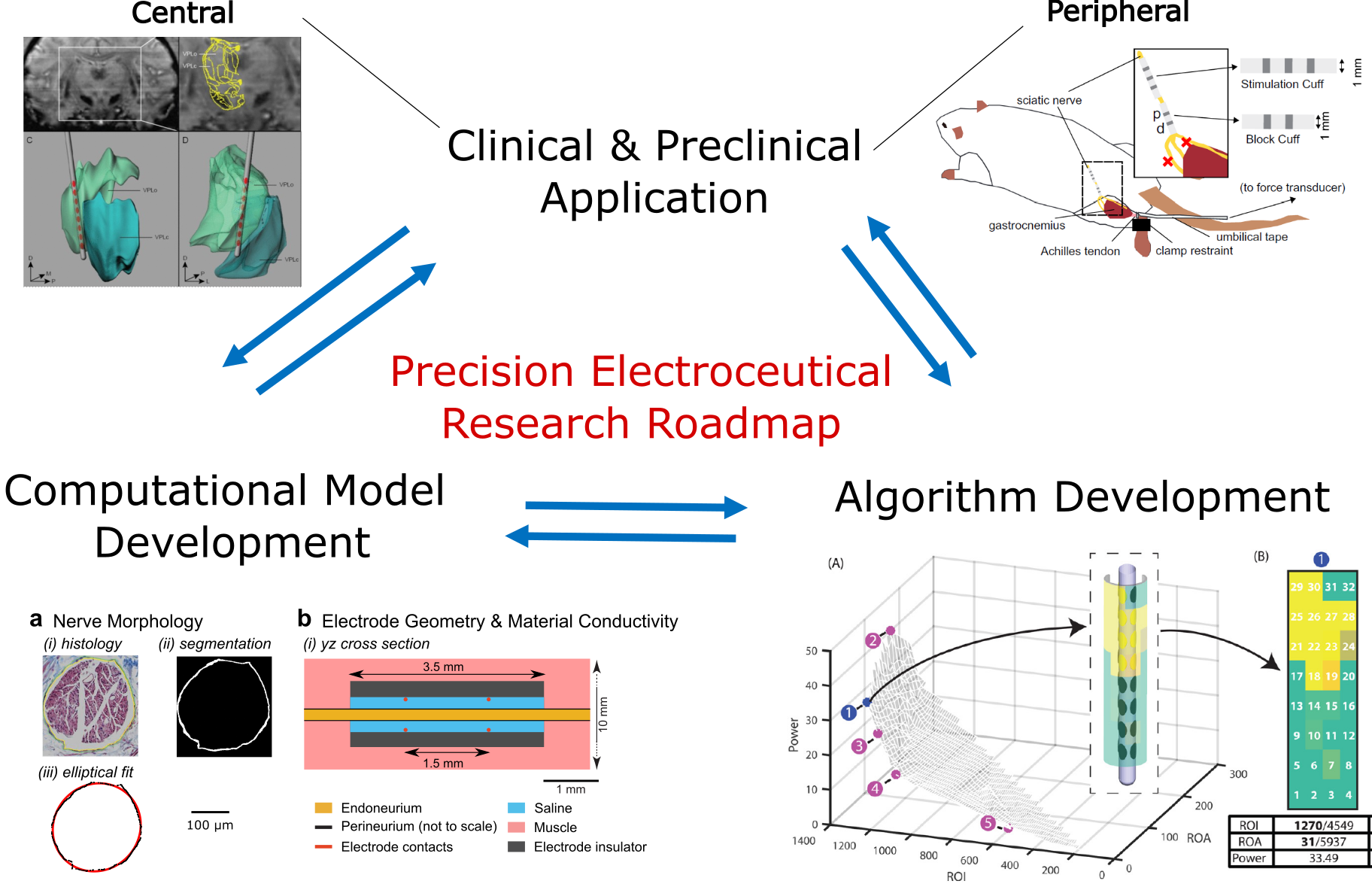Job Opportunities
Job Ad (Undergraduate Research Assistant)
Research Overview
Electrical neuromodulation has transformed the clinical management of diseases in which pharmaceuticals alone are less effective. However, even established, highly impactful therapies like deep brain stimulation (DBS) for Parkinson’s disease and spinal cord stimulation for chronic pain have average efficacy rates of ~60%, and outcomes are worse for emerging therapies such as DBS for treatment-resistant Depression. The result is that tens of thousands of implanted individuals remain with debilitating signs and symptoms. Personalization of neuromodulation therapies could substantially increase therapeutic response rates by directing electric current more selectively to reduce therapy-limiting side effects and by clarifying the relationship between neural targets and clinical outcomes.
My lab develops computational models that push the state-of-the-art to enable personalized neuromodulation therapies. In parallel, my lab leverages state-of-the-art modeling, electrophysiology, and data science methods to understand emerging methods for selective modulation of the nervous system. Given the growth in electrical neuromodulation for both autonomic and central nervous systems (e.g., excessive inflammation in rheumatoid arthritis, blood pressure in hypertension, and rehabilitative therapies post-stroke), my lab pursues outcomes that will have a widespread impact on clinical practice.
